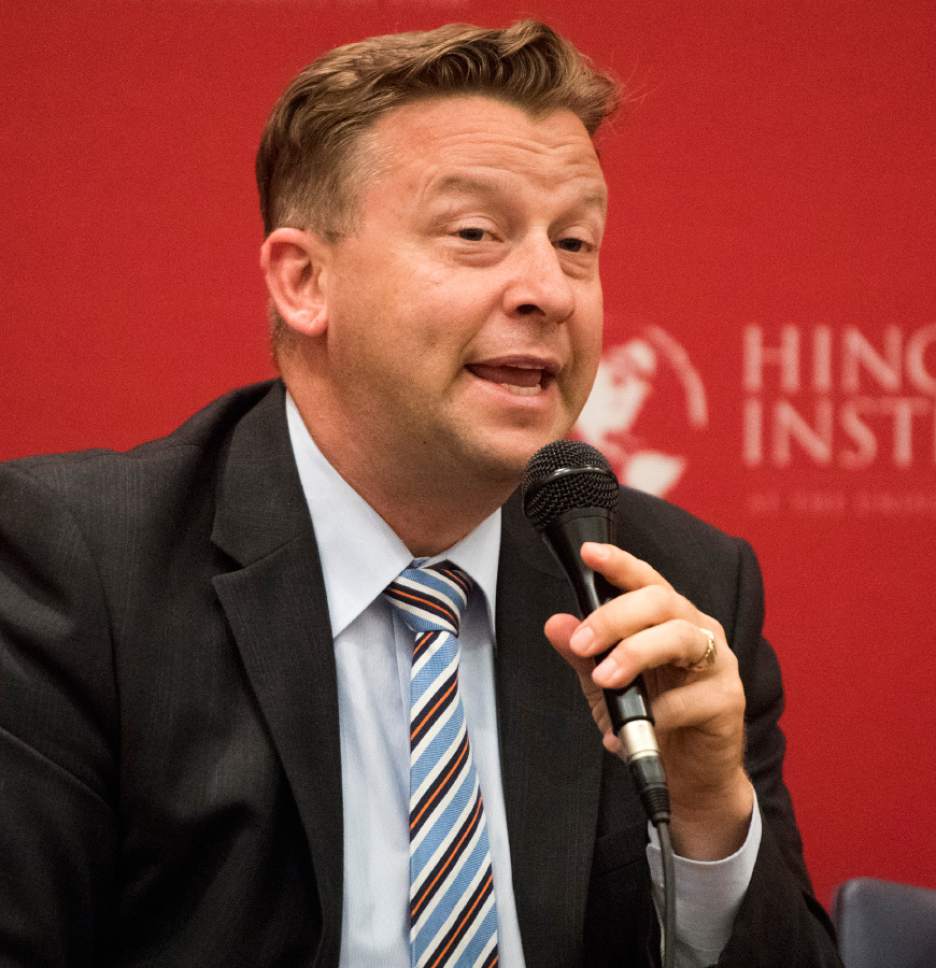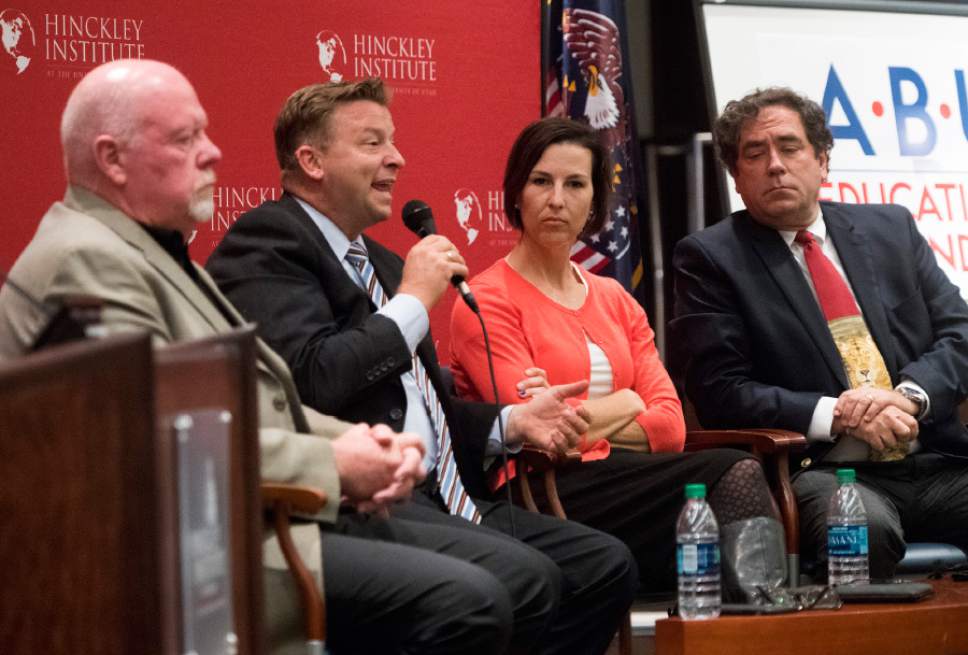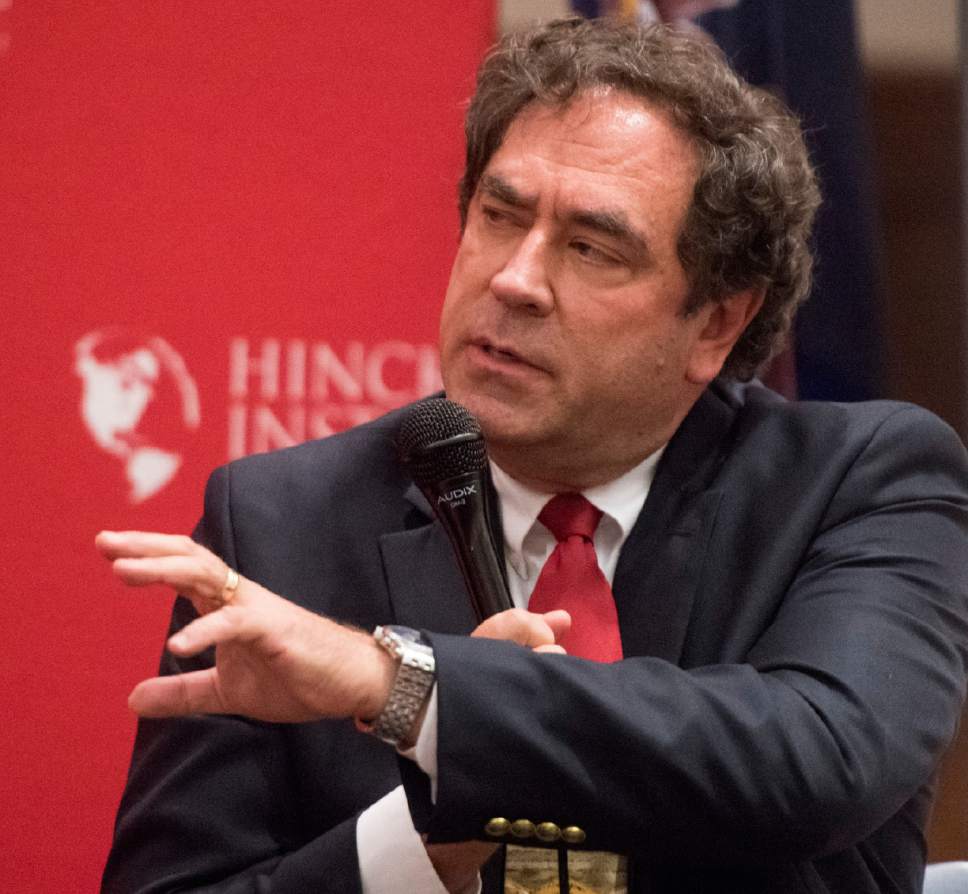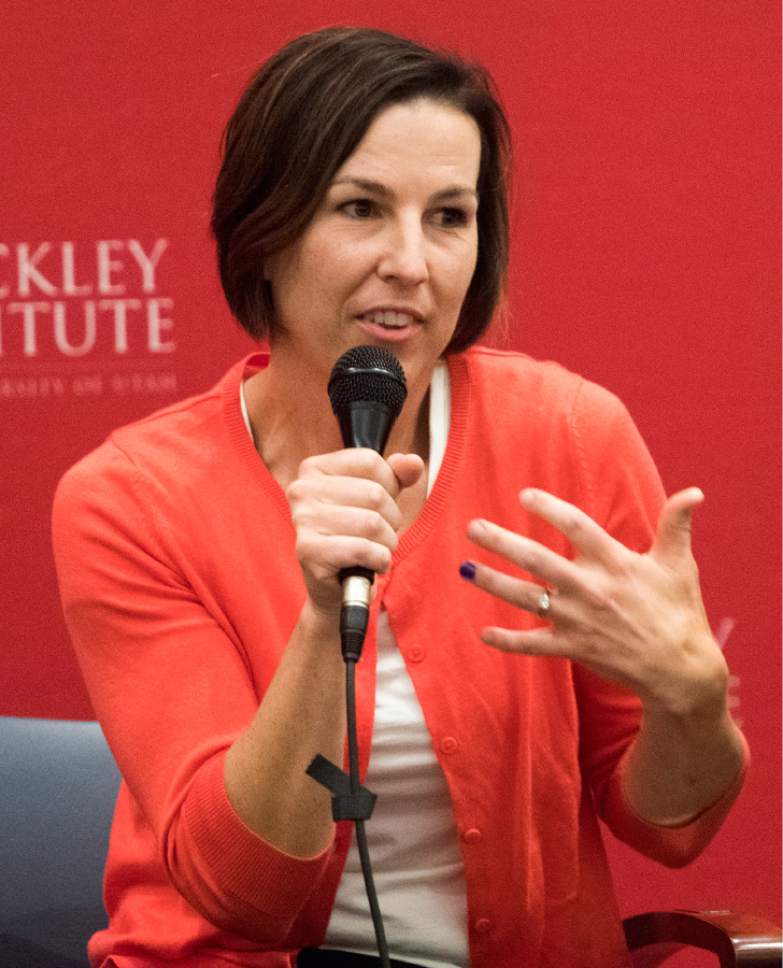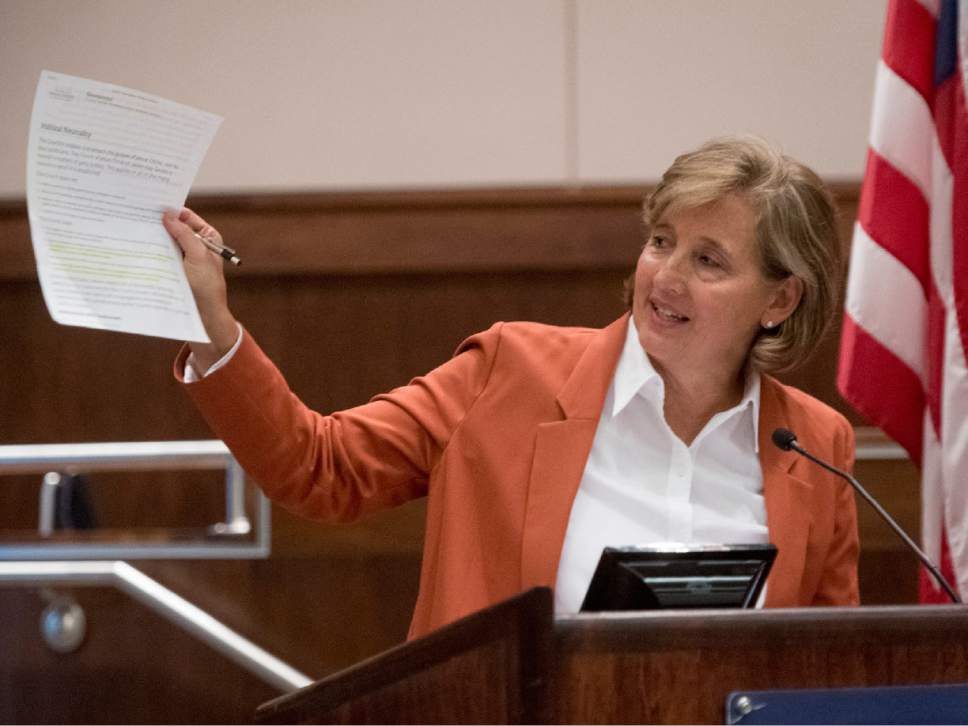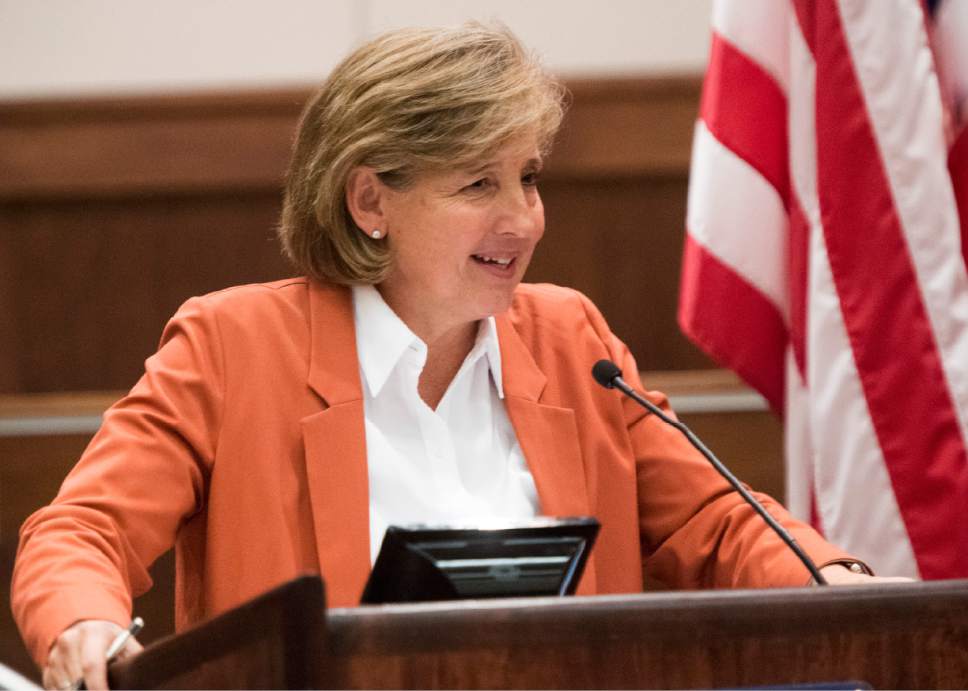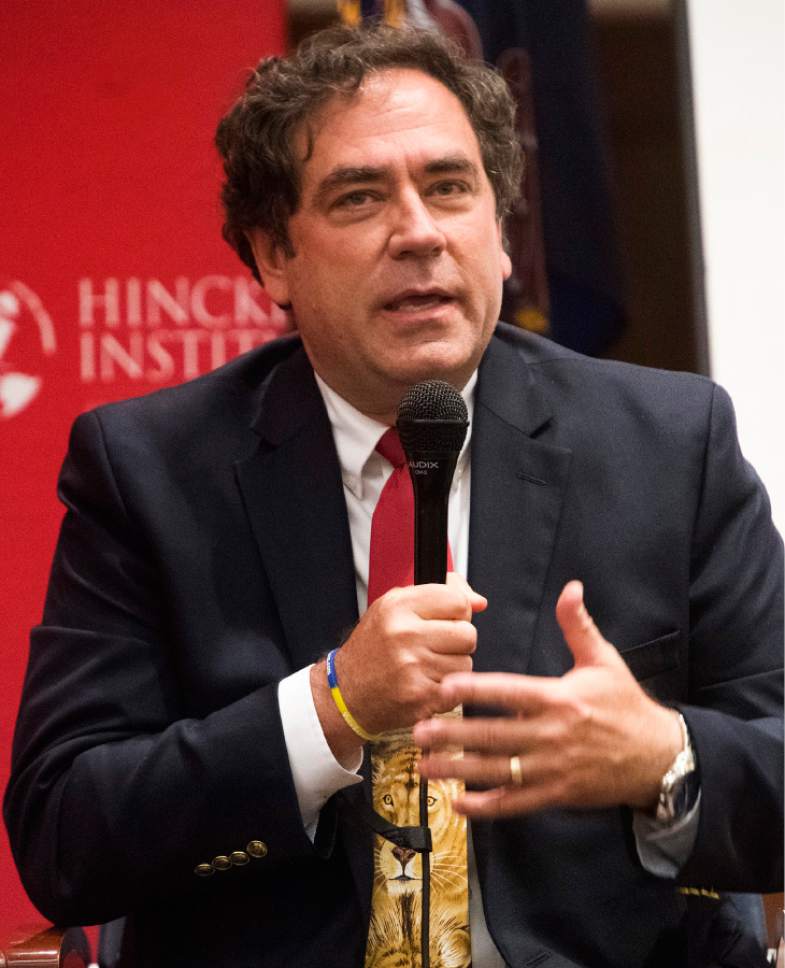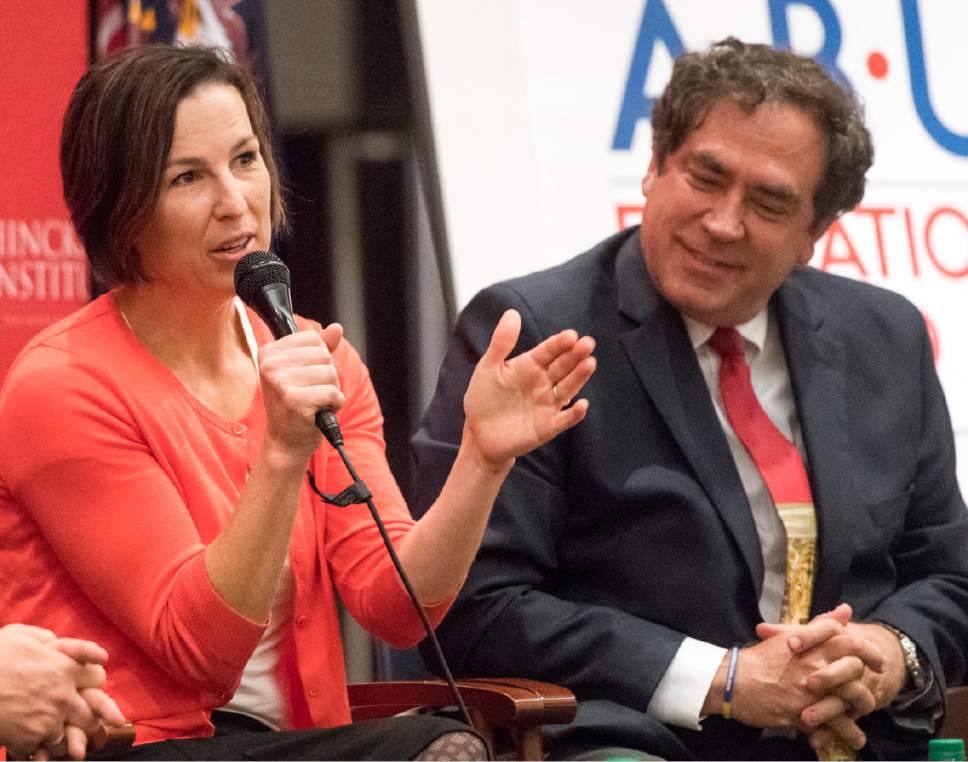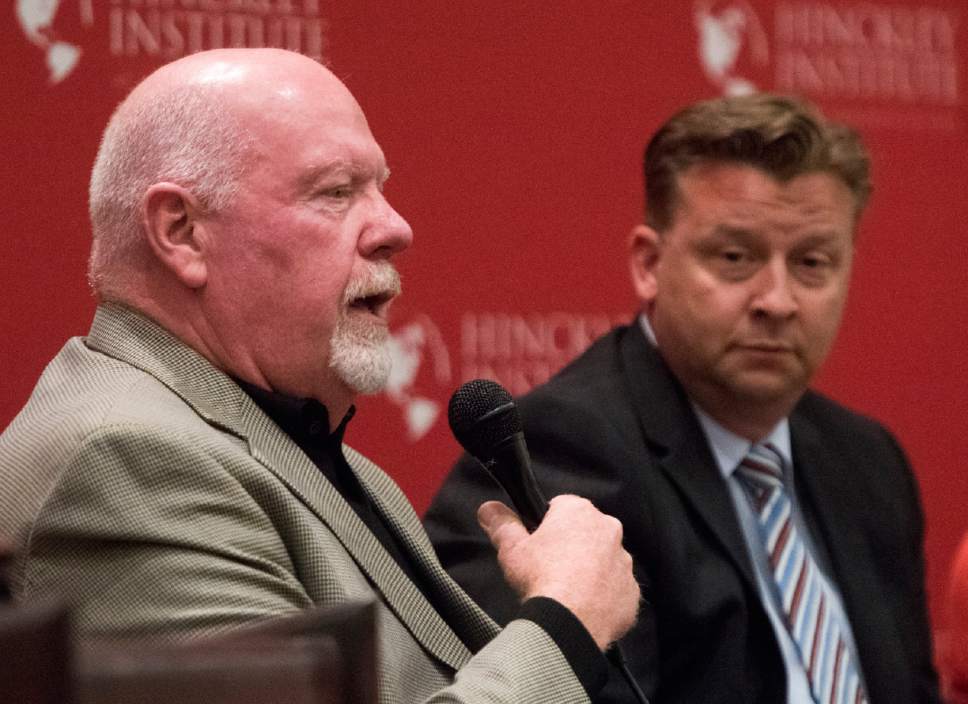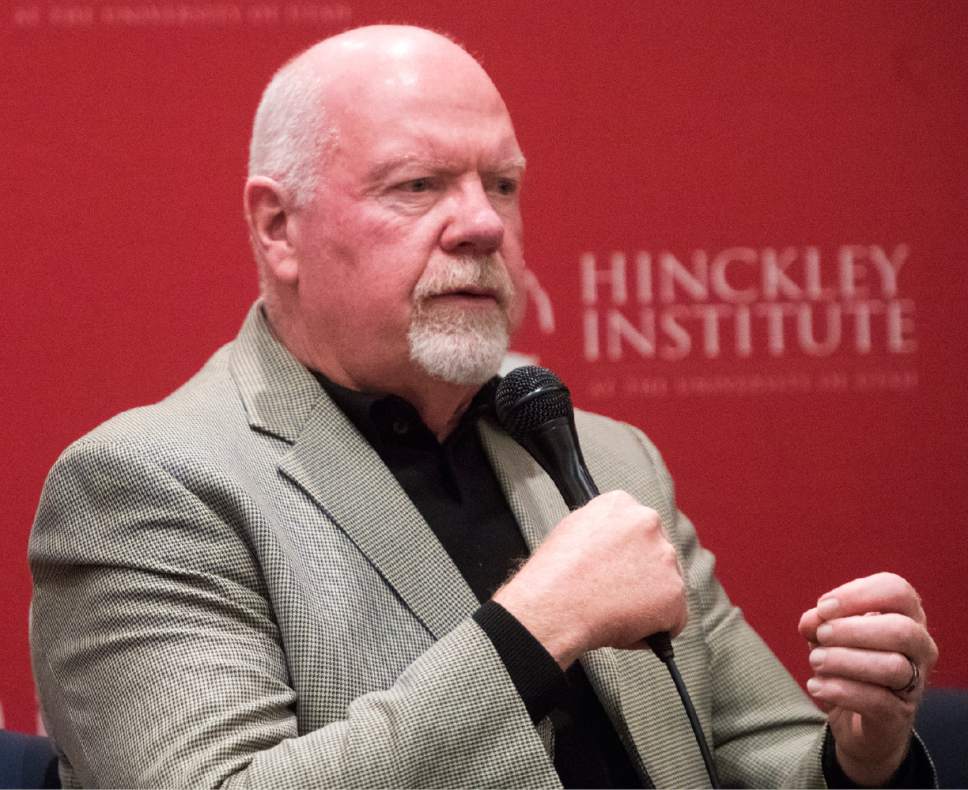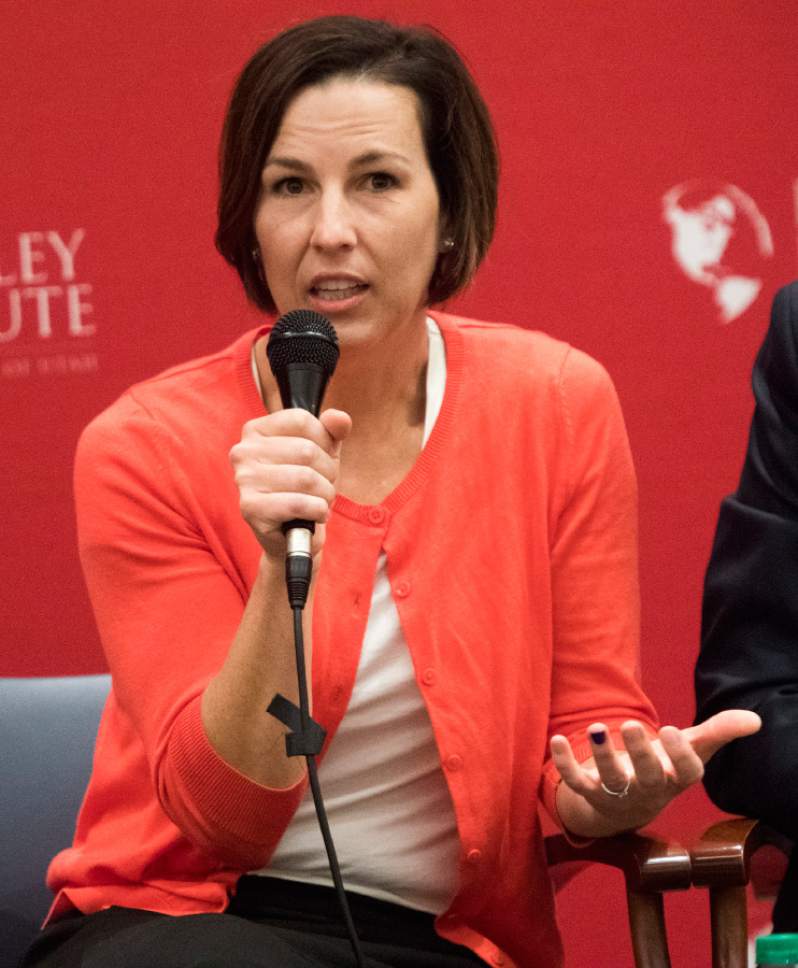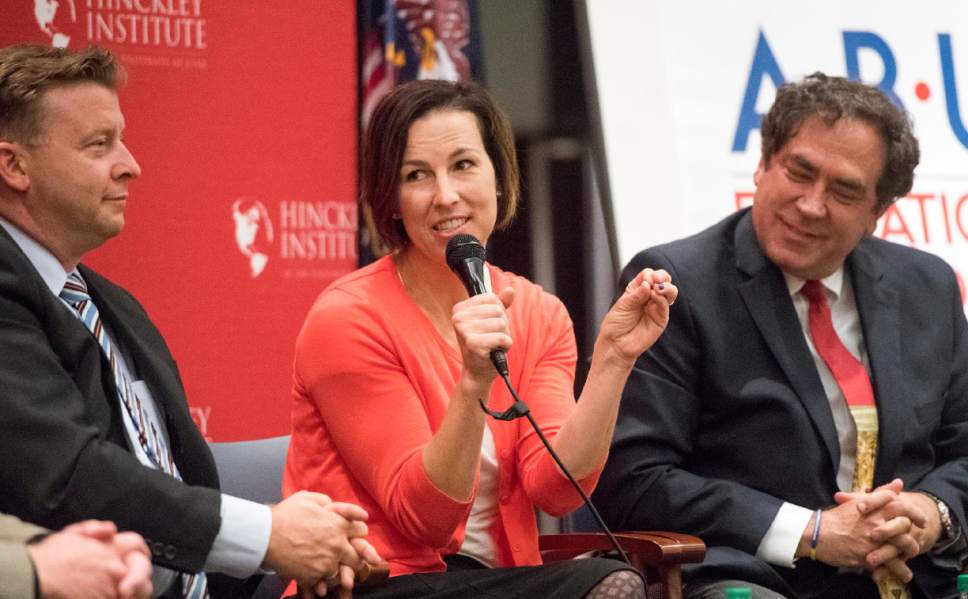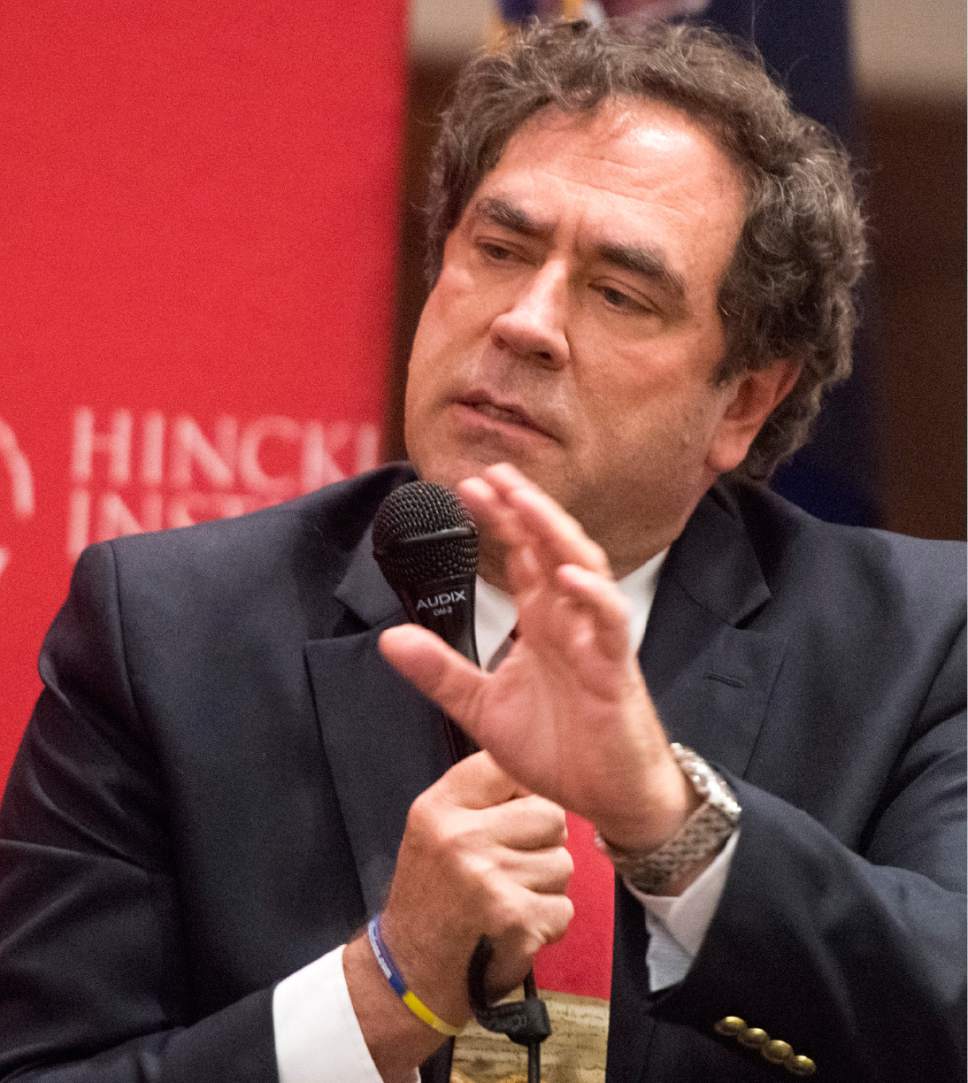This is an archived article that was published on sltrib.com in 2016, and information in the article may be outdated. It is provided only for personal research purposes and may not be reprinted.
Elected officials have multiple priorities while in office — faith, family, ideology, the will of voters — and what comes first varies by how they view their role.
Former Sen. Gordon Smith, an Oregon Republican and Mormon, spelled out where faith falls on his list during a 2009 meeting with high-level LDS Church authorities in which he said he viewed his "temple recommend as more important than an election certificate" and lamented that his religious leaders didn't call on him more often for help. A video recording of that candid conversation was leaked online Sunday in an attempt to embarrass the Utah-based Church of Jesus Christ of Latter-day Saints, and at least one Mormon professor saw it as potentially damaging.
"We grant public officials some leeway in matters of conscience. Yet it could be perceived as problematic if someone were to outsource their conscience to church leaders," said Grant Hardy, who teaches history and religious studies at the University of North Carolina at Asheville. "For some viewers, Senator Smith's comments may come close to that line, and may make it more difficult for Mormons to be elected to public office in the future, at least in states where Mormons are a small minority."
Even so, fellow Mormon politicians came to Smith's defense Monday, arguing that faith is and should be a driving factor for elected officials.
"Would it cross the line for anyone if Gordon had said, 'My family is more important to me than holding public office or any other job?' I think he was simply expressing the role of faith in his life," said former Utah Gov. Mike Leavitt, who appeared in leaked LDS video from 2012 discussing a campaign to protect religious freedom after the legalization of gay marriage in some states.
"For a lot of people, faith and family are closely intertwined. For some, faith is important. For others, it is not," Leavitt added. "There is nothing wrong with a person expressing their life priorities."
Religion is always a touchy issue in politics.
When running for the White House in 1960, then-Sen. John F. Kennedy tried to assure voters that his Catholic faith wouldn't drive his decisions while in office, noting the pope wouldn't tell him what to do.
"I believe in an America that is officially neither Catholic, Protestant nor Jewish," Kennedy said, "where no public official either requests or accepts instructions on public policy from the pope, the National Council of Churches or any other ecclesiastical source."
The same applied to Mitt Romney in 2007, when he was first seeking the presidency. He mirrored Kennedy's message, arguing that while he is a devout Mormon, the church's leaders wouldn't be calling the shots if he were elected.
"Let me assure you that no authorities of my church, or of any other church, for that matter, will ever exert influence on presidential decisions," Romney said. "Their authority is theirs, within the province of church affairs, and it ends where the affairs of the nation begin."
That's not exactly what Gordon Smith told LDS leaders during his 2009 meeting, just weeks after he ended his 12-year Senate career.
"I believe the Lord's hand exists in the affairs of nations," said Smith, who now heads up the National Association of Broadcasters.
Smith advocated that church authorities urge more members to get involved in politics, particularly those who, like him, put their faith above politics.
"It is really important that Latter-day Saints be encouraged to get involved in public affairs — to the extent that they can stand it," Smith said. "Having them in there and knowing that their temple recommend is more important than their election certificate is of inestimable value in terms of what I have seen."
Ralph Hardy, then an area LDS authority in Washington, D.C., who is not related to the North Carolina professor, introduced Smith, saying the senator's staff was "church broke" even if they weren't Mormons themselves.
"In fact, not many months ago his legislative director called me on the phone and said, 'Ralph, you haven't called us in six weeks. What are we supposed to be doing?' "
Smith said Hardy often called to set up meetings with representatives of foreign governments and "a U.S. senator can get those meetings." At Hardy's prodding, the former senator said, he had conversations with the ambassador from India who eventually agreed to sign visas for Mormon missionaries.
Speaking of Hardy, Smith said: "He didn't call enough, but when he did, we saw miracles."
The senator also said he voted for the Iraq war "because I felt the Lord's hand in it" and he saw the fight as a way to create a stable government.
"If that succeeds, there will be an opportunity to begin building the church in the Middle East, which is a deeply troubled place," he said in the video. Missionaries are banned from seeking converts in most Middle Eastern countries.
Smith declined an interview request about the leaked video as did some Mormon elected officials. Others didn't return requests for comment.
"Every U.S. citizen deserves an expectation of privacy," said Rep. Chris Stewart, a Utah Republican and author of Mormon-influenced books. "I don't intend to respond to a news story about private conversations that were anonymously released to the public."
Others said their priorities were similar to Smith's.
Doug Owens, the Democrat challenging Rep. Mia Love, R-Utah, said: "My LDS faith has inspired me to want to serve others and give back, not just now as a candidate for public office, but throughout my life. The values I was raised with are the values I'll take to Washington."
Love declined to comment.
"The moral teachings of my faith have guided me throughout life, including my Senate service," said longtime Sen. Orrin Hatch, R-Utah. "Religious commitments have provided spiritual direction and ethical foundations that have helped me better serve the people of Utah and the nation. In the end, honoring my deeply held beliefs matters far more than political success, as important as elections and policy reforms may be."
Talking about the intersection of faith and politics is not new for Hatch, and he believes it should take place more frequently. In a November 2015 speech on the Senate floor, he decried the idea that religion should play no role in public discourse or the decisions of lawmakers.
"Such an approach undermines religious liberty in numerous ways," Hatch said. "It tells the religious believer that in order to participate fully in public life, he should ... hide his religious devotion: Just abandon your religious affiliation, and the government will partner with your school or charity; just muzzle your faith, and you can fully participate in representative government and lawmaking."
The LDS Church has lobbyists in Washington, but says it is "neutral in matters of party politics."
Back in Salt Lake City, two Mormon state lawmakers — one Democrat and one Republican — weighed in on the Smith video Monday night during a Hinckley Institute of Politics panel discussion about the intersection of the LDS faith and politics.
State Sen. Todd Weiler, R-Woods Cross, mentioned negotiations to allow Mormon youth groups to re-enact pioneer treks over federal land and Brigham Young University's acquisition of property around Y Mountain as instances during which it was helpful to have Mormon lawmakers in Washington.
"Neither of those were unrighteous purposes," said Weiler. "I think it is good for the church to have some people that are connected in D.C., so that when they have a legitimate federal interest, they have someone who can connect them to the right audience."
State Rep. Brian King, D-Salt Lake City, said he worried about getting too hung up on religion.
"There are many, many virtuous, wise, honest individuals outside the LDS Church," he said. "What's important is good men and women all across the spectrum to get elected."
— Salt Lake Tribune reporter Zoe Woolf McGinn contributed to this article


